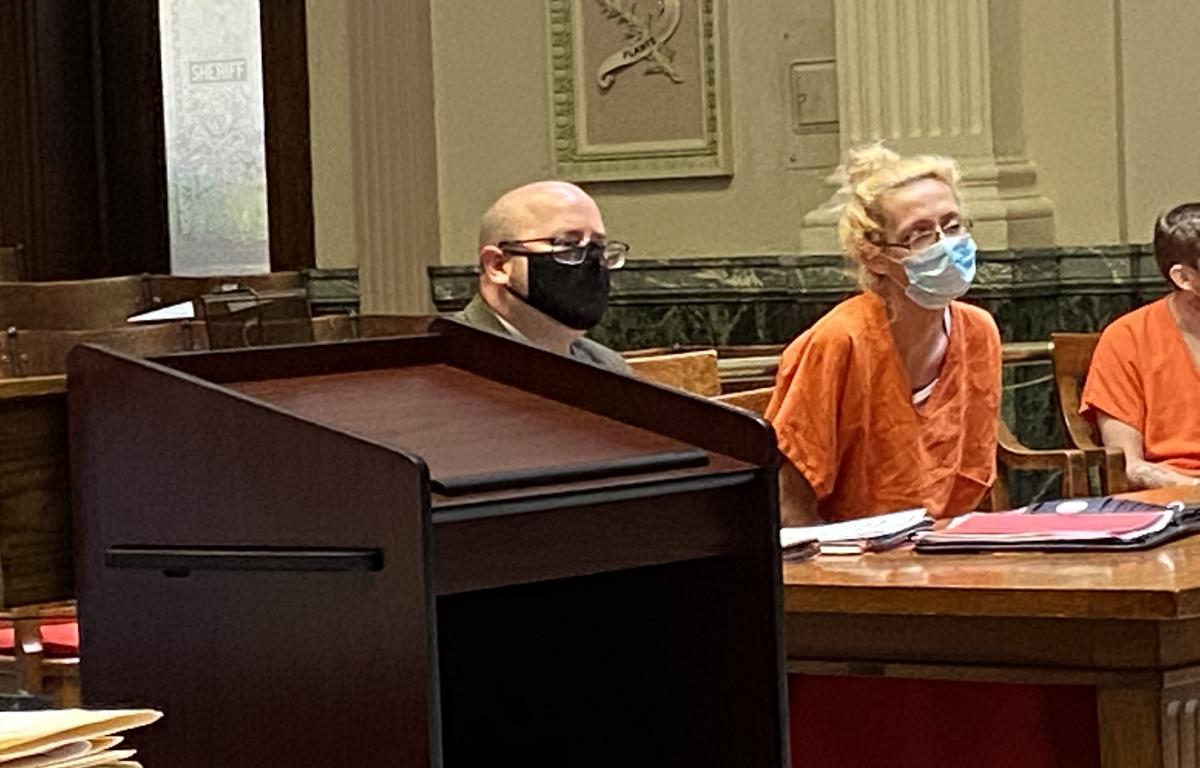BUCYRUS — A Galion woman appeared in Crawford County Common Pleas Court on Monday to plead guilty to violating the terms and conditions of her community control.
Rebecca Eckenrode, 32, was placed on community control in 2019 after she pleaded guilty to conveying an illegal substance into a detention facility, a third-degree felony punishable with up to three years in prison.
Eckenrode was accused of violating her community control on July 14 when she tested positive in a urine drug screen for amphetamines, ecstasy, and meth. She admitted to using the drugs.
As part of a plea negotiation, the state agreed not to bring new charges against Eckenrode in exchange for an imposition of the full three years in prison.
Before sentencing, Eckenrode apologized to the court.
Common Pleas Court Judge Sean Leuthold said he was imposing the sentence with a heavy heart,
“At this point all attempts to keep you out of a lockdown program have failed,” Leuthold said. “I have to keep you alive. You made a lot of progress, but you have fallen off the wagon. I feel terrible that this is where we are at.”
Leuthold sentenced Eckenrode to three years with jail time credit. He said he would not oppose transitional control (movement to a halfway house) if the prison requested it.
In other court action, Noah Thornton, 32, of Galion pleaded guilty to violating the terms and conditions of his community control. Thornton was placed on community control for felony child nonsupport, a fourth-degree felony punishable with up to 18 months in prison.
Thornton admitted to testing positive for THC, meth, and methamphetamines on June 30.
Leuthold sentenced Thornton to six months in prison, shaving one month of the recommended seven-month sentence. Leuthold said he would not oppose transitional control if the prison requested it.
Timothy Moyer pleaded not guilty via video from the Crawford County Jail on allegations he violated the terms and conditions of his community control. He was represented in court by his retained attorney, Adam Stone.
According to allegations leveled by his probation officer Chris Heydinger, on July 15 Moyer changed addresses without notifying him, refused an order to submit to a drug test and was in possession of a controlled substance suspected to be heroin or fentanyl.
Leuthold ordered the matter set for a full hearing. In arguing bond, assistant prosecutor Ryan Hoovler told the court that this was Moyer’s third violation of his community control. On May 27, Moyer failed to show up for a probation violation hearing, a warrant was issued, and he put up a $50,000 bond. On June 3, he again failed to appear, this time while Stone was in the courtroom. He was arrested and posted a $150,000 bond.
“Your Honor, this is the third probation violation after posting two bonds. Mr. Moyer cannot comply with the conditions of his community control and is allegedly committing more crimes,” Hoovler said. “To protect him and the public from his drug use and to ensure his appearance for upcoming hearings, the state asks for a $250,000 bond.”
Stone agreed that his client failed to appear for previous hearings.
“I was right here in court when he didn’t show up and the warrant was issued,” Stone said. “However, this bond in accordance with bond guidelines is too steep.”
Leuthold pointed out that Moyer’s underlying charge was a fourth-degree felony of counterfeiting, punishable with up to 18 months in prison.
“Look, Mr. Moyer not showing up in court two times and posting bond both times is a flight risk. $150,000 bond didn’t do the job. He failed to appear,” Leuthold said.
Leuthold granted the state’s request and set bond at $250,000.
A defendant sitting in the hall waiting for a pre-trial hearing apparently fled after being told he needed to take a drug test. As is customary, defendants on bond are tested when they appear for hearings related to their case.
Christopher Grasley, 30 of Galion is facing one count of forgery, a fifth-degree felony punishable with up to one year in prison.
Leuthold issued a warrant for Grasley’s arrest.
“Mr. Grasley left after being told he needed to take a drug test,” Leuthold said. “He told our officer that he could not produce urine. In the old days, we would call this a ‘23 Skidoo.’”


